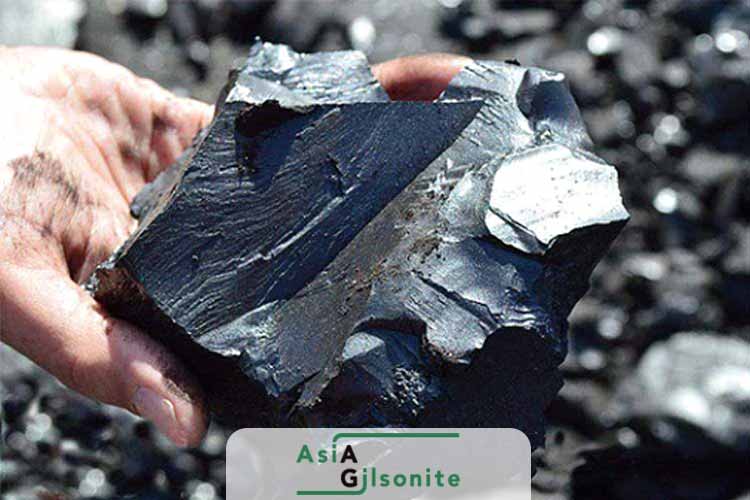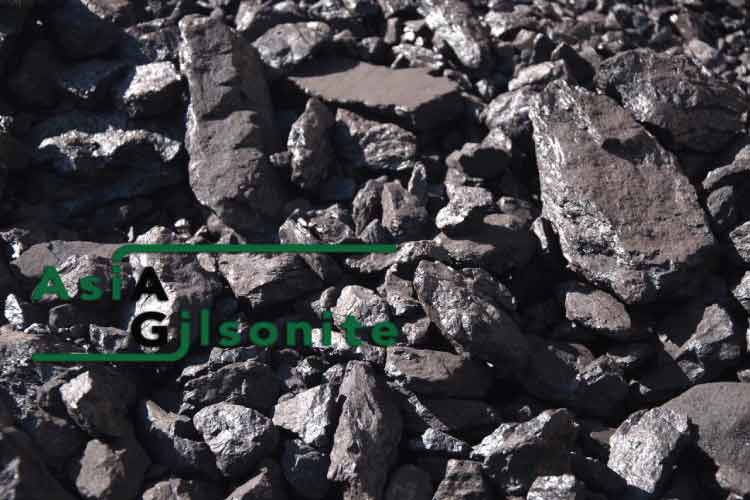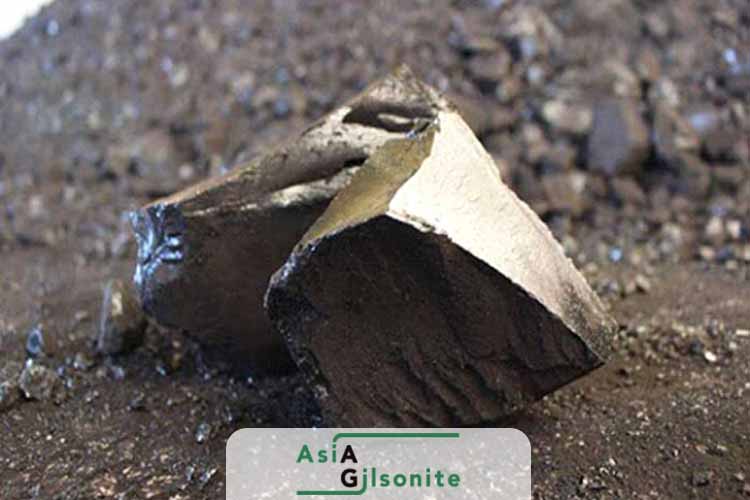Natural bitumen, otherwise referred to as asphalt or tar, is a rare material with an incredible history. Dating back centuries, it has been put to use for constructing buildings, orchestrating adhesives, and even creating waterproofing agents. This natural mineral is a kind of petroleum that is sourced from reservoirs across the globe. Despite its ubiquity in various projects, many individuals are unaware of what natural bitumen is and how it comes into being. This article will expound upon the characteristics and properties of bitumen, such as what it is composed of, its practical advantages, and the diverse forms of activity it is used for.
What Natural Bitumen Is
Millions of years in the making, natural bitumen or asphalt is a semi-solid or solid form of petroleum found in the earth. It is composed of a complex amalgamation of hydrocarbons, consisting of asphaltenes (which is used in asphalt paving process) and resins, as well as containing compounds of sulfur and nitrogen.
Often formed through the decomposition of organic matter, like dead plants and animals, this heavy black substance can usually be found in areas of geological movement such as those areas subject to volcanic eruptions or tectonic shifts.
For centuries, mankind has been exploiting the many uses of bitumen. Its waterproofing capabilities, its application in road infrastructure, and its energy-producing properties, all account for its many advantages. Even in modern times, it still plays a significant role, as a heat-resistant material in asphalt production for roads and roof tiles, and in various industrial applications.
Natural Bitumen Price
The price of natural bitumen can be incredibly varied, depending on numerous factors. These include supply and demand which is heavily influenced by the limitations of available supplies; location which takes into account the transportation and distribution costs; a quality which dictates the caliber of the product consumed; extraction and production costs which reflect the effort to acquire the resource; and finally, market competition which drives the competing prices.
With all these variables, it is practically impossible to provide a precise price tag for bitumen. Fortunately, you can still find indicative costs by looking into local suppliers or industry reports. To ascertain how much natural bitumen will cost, you first need to evaluate the current demand and supply. From there, investigate the location of the source, analyze the quality of the commodity, calculate the extraction and production costs, and inspect the level of competition in the market for natural bitumen.
What’s the Difference Between Bitumen and Asphalt?
Asphalt and bitumen may sound similar but they are two distinct materials commonly used in the construction industry. Bitumen, also known as asphalt binder or asphalt cement, is a tacky, black, semi-solid form of petroleum. It is a highly viscous and malleable substance derived from crude oil through an intensive refining process.
As a binder, Bitumen forms the “glue” that holds asphalt together. It is especially useful in the construction of roads, pavements, and waterproofing applications; providing durability, flexibility, and resistance to deterioration and aging.
On the other hand, asphalt is a mixture of bitumen and aggregates such as sand, gravel, and crushed stone. It is used as a surfacing material for roads, parking lots, driveways, and many other paved surfaces.
Asphalt is usually produced in special asphalt plants, where bitumen is mixed with the said aggregates at high temperatures to create a homogeneous product. The resulting asphalt blend is then rolled and compacted to form a tough and resilient pavement.
Types of Natural Bitumen
There are several different types of bitumen, each with its unique characteristics. Some of the most common types include:
Gilsonite
Gilsonite (natural asphalt) is a naturally occurring hydrocarbon, found in regions of Utah and Colorado and beyond. Its defining feature is its remarkably high melting point, making it an integral component for many industrial applications, from asphalt pavement to roofing materials and beyond. Its unique properties thus render it a valuable element, highly regarded and sought after for its properties to facilitate various industrial projects.
Trinidad Lake Asphalt
Trinidad and Tobago is home to a unique variety of natural bitumen, known for its high asphaltene content. It is utilized in a multitude of ways, such as constructing roads and providing waterproofing and industrial coatings. It is an incredible resource and is being found more frequently, as its possibilities are explored to a greater degree.
Iranian Bitumen
Iranian bitumen, a material found in Iran renowned for its exceptional quality and economical prices, has many applications, from road construction to roofing materials. Its unparalleled properties make it indispensable for both industrial and commercial sectors, with its low cost and high-quality allowing for a various number of uses. Its sophisticated properties permit it to be employed for many different tasks, and thus, it has become a necessary material for numerous construction projects.
Petroleum Bitumen
Petroleum bitumen is a type of natural bitumen derived from crude oil and is the most widely used form worldwide. This bituminous product is an essential ingredient in road construction, the production of waterproofing materials, and even for manufacturing roofing materials, forming much of the fabric of our built environment.
Alongside its practical applications, it is also a symbol of complexity, representing the variability of sentences between short and long, complex and simple. Through its intricate characteristics, petroleum bitumen invites us to explore the nuances of our structural world and the many ways in which this bitumen can shape our lives.
Asphaltite
Asphaltite is an incredibly dense and hard bitumen found in various parts of the globe, including the Andes Mountains and the Caribbean. Like Gilsonite, its naturally occurring properties make it ideal for use in the production of asphalt, where its unique characteristics ensure great quality for the final product.
With both perplexity and burstiness in mind, asphaltite offers an optimum level of resistance to both weather and physical damage, providing an incredibly reliable product that is suited to a wide range of applications.
Natural Bitumen Applications
In order to construct roads, natural bitumen is utilized as a binding agent in asphalt. Its exceptional water-resistant properties make it suitable for roofing and waterproofing applications, as well as pavement preservation to maximize the lifespan of surfaces. Additionally, it serves as a great source of adhesives, sealants, paint, coatings, and insulation due to its heat-resistant characteristics.
Additionally, bitumen can be used in the production of various chemicals as a feedstock. Moreover, it can also be used to stabilize soil in construction and landscaping projects, as well as to reduce sound due to its soundproofing capabilities.
Bitumen is not just a renewable resource, derived from oil sands and oil shale which replenish over time; but also a cost-effective, versatile material with a range of applications across various industries. It offers durability in any weather or heavy traffic and is a much more environmentally friendly alternative to synthetic bitumen, with a lower carbon footprint and potential detrimental effects on the environment. Furthermore, its low-maintenance and easy-to-apply qualities make it ideal for any construction job.
Asphalt and bitumen are incredibly versatile materials, utilized in a number of applications for any and all types of projects:
- Road paving is one of the most common applications for bitumen and asphalt, they are often used in the construction of highways, roads, and other transportation infrastructure. Asphalt and bitumen are also used as roofing materials to protect from weather elements.
- In addition, these materials are frequently applied to bridge surfaces due to their excellent resistance to weather conditions. For athletic tracks and sports fields, they provide good elasticity and non-slip properties, making them the perfect choice.
- Waterproofing is another common use of asphalt and bitumen, they are utilized for various structures like tunnels, dams, and reservoirs.
- Similarly, they are used in pavement preservation to extend the life of existing roadways through chip sealing or micro-surfacing.
- Finally, asphalt and bitumen have industrial uses like sealants, adhesives, and coatings due to their waterproofing and adhesive qualities.
Conclusion
Natural bitumen is a multi-faceted material, with fascinating properties that can benefit a multitude of projects. From enhancing waterproofing abilities to serving as an adhesive or bearing the load of a structure, this invaluable material is sure to be at the heart of various constructions. It is essential to have a profound understanding of the composition and production of bitumen to take advantage of its extensive potential. Not only is this material an ideal solution for many tasks, but the nuances in its complexity also make it a unique asset.






